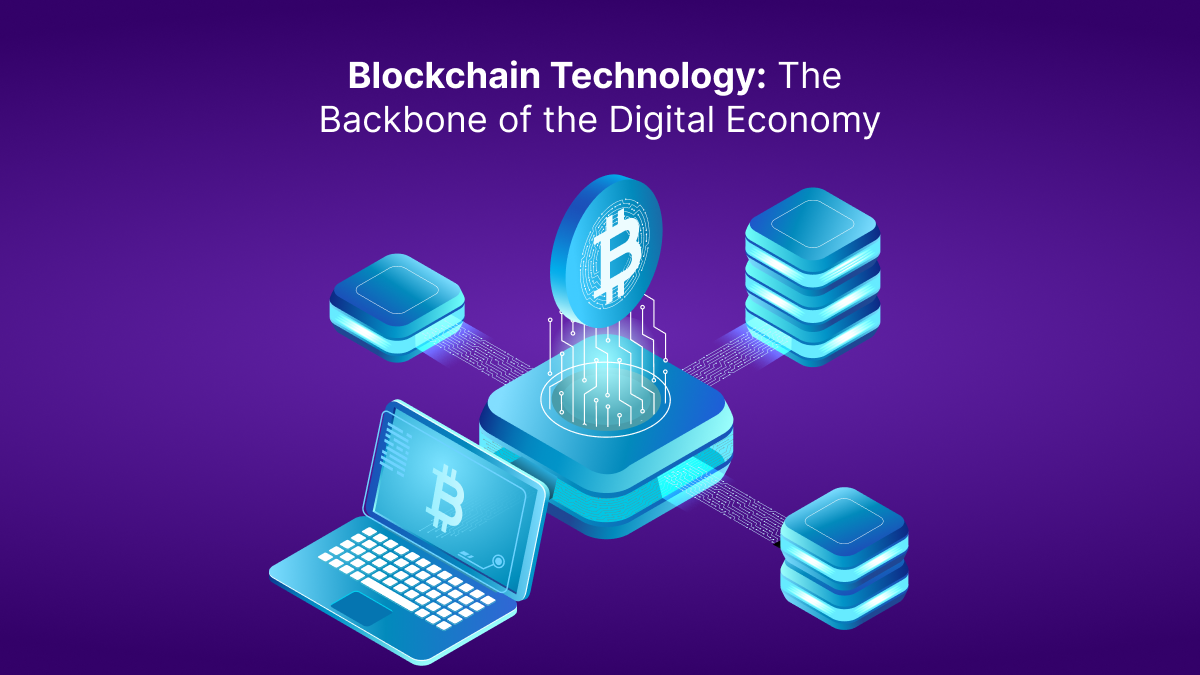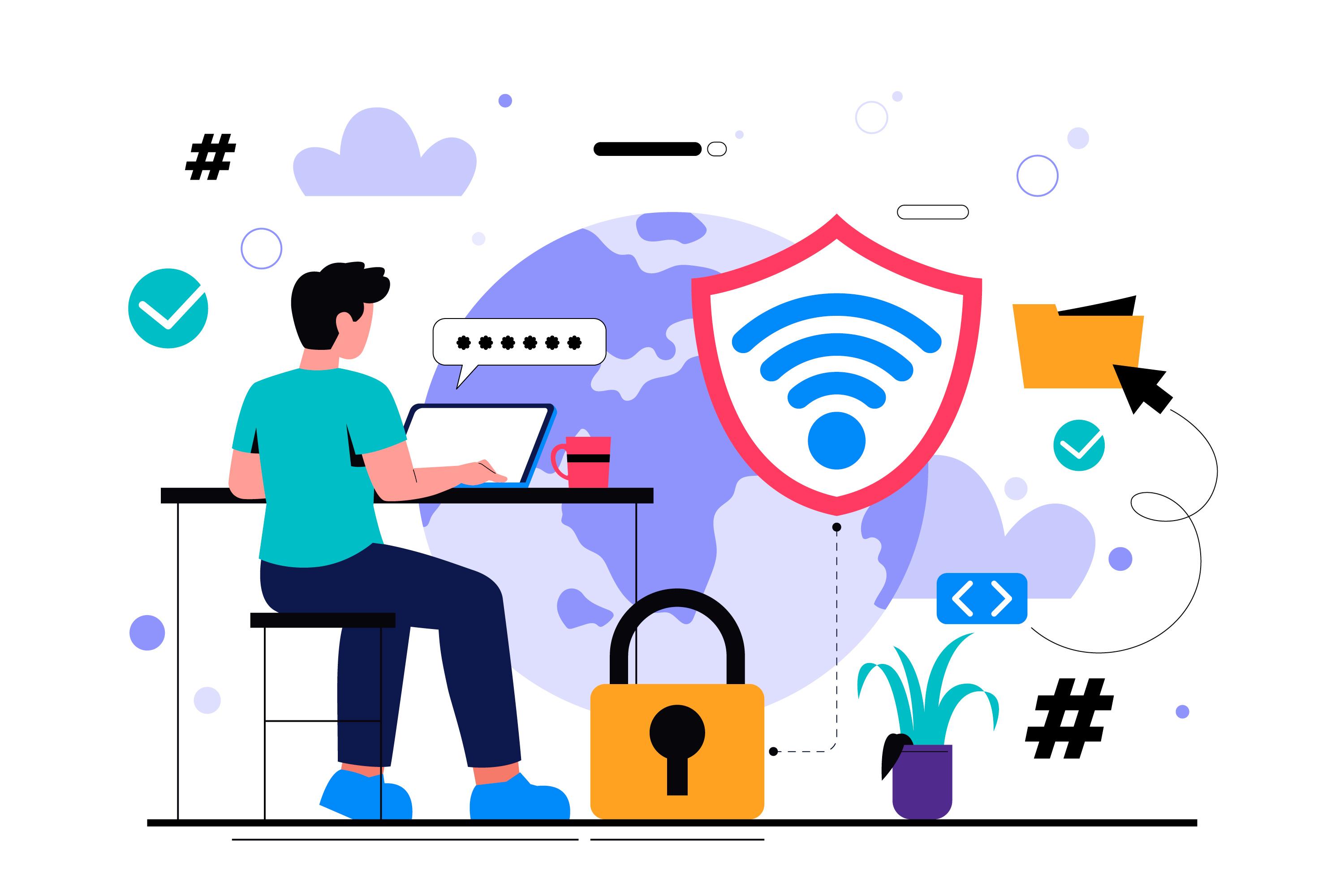Blockchain Technology: The Backbone of the Digital Economy

The digital economy has transformed how we live, work, and do business. From online shopping to digital banking, the world is rapidly moving toward a technology-driven future. One of the key forces behind this transformation is blockchain technology. While most people associate blockchain with cryptocurrencies like Bitcoin, its applications go far beyond digital coins. Blockchain has become a strong foundation for secure, transparent, and decentralized systems, making it an essential part of the digital economy.
In simple words, blockchain is a digital ledger that records transactions in a way that is safe, transparent, and unchangeable. This blog explores how blockchain technology supports the digital economy, what makes it reliable, and why it’s becoming more important for businesses and individuals worldwide.
What Is Blockchain Technology?
To understand the importance of blockchain, let’s start with the basics. Blockchain is a system where digital data is stored in blocks and linked together in a chain. Every block contains information about transactions, and once that block is added to the chain, the data cannot be changed or deleted. This creates a permanent record that is shared across a network of computers.
Unlike traditional databases that are controlled by a single organization, blockchain is decentralized. This means that no single person or company controls the system. Instead, all participants in the network work together to verify and add new transactions. This structure builds trust and reduces the need for middlemen or third-party services.
Why Blockchain Is So Valuable in the Digital Economy
The digital economy relies on fast, secure, and trustworthy systems. As more businesses and consumers move online, there is a growing need for reliable technologies that can support this shift. Blockchain offers several features that make it ideal for this purpose.
Transparency is one of the biggest advantages. Since everyone in the network can see the data, it becomes easier to track and verify transactions. This helps in building trust between users, especially in industries like finance, supply chain, and real estate.
Security is another strong point. Blockchain uses encryption and advanced algorithms to protect data from hackers and fraud. Each transaction is verified by the network before being added to the chain, making it almost impossible to alter or fake records.
Decentralization removes the need for central authorities. This allows peer-to-peer transactions and reduces costs for businesses. It also makes systems more efficient and less vulnerable to outages or corruption.
How Blockchain Supports Different Sectors
Blockchain is being adopted across many industries. Let’s look at a few examples where this technology is already making a difference.
Finance and Banking
Blockchain first became popular in the financial world, and for good reason. It allows fast, secure money transfers across borders without involving banks. It also reduces transaction fees and waiting times. Many financial institutions are now exploring blockchain for clearing and settlement processes, loan verification, and fraud prevention.
Supply Chain Management
In supply chains, blockchain provides complete visibility into the movement of goods. Every step from production to delivery can be recorded on the blockchain, making it easier to detect delays, fraud, or quality issues. It also ensures the authenticity of products, which is especially useful for pharmaceuticals, food, and luxury goods.
Healthcare
Medical records stored on a blockchain can be accessed securely by authorized professionals. This improves coordination between doctors and hospitals, reduces errors, and ensures better patient care. Patients can also control who gets to see their health data, which improves privacy and trust.
Digital Identity
With blockchain, individuals can have a single digital identity that they use across multiple platforms. This eliminates the need to create new usernames and passwords for every service. It also helps in preventing identity theft and improving user experience online.
Real Estate
Blockchain simplifies the buying and selling of property. All documents related to ownership, payments, and legal clearances can be stored on the blockchain. This reduces paperwork, speeds up transactions, and lowers the risk of fraud.
Blockchain and Smart Contracts
One of the most powerful features of blockchain is smart contracts. These are self-executing contracts with rules written into the code. Once the conditions are met, the contract automatically performs the required action.
Smart contracts remove the need for lawyers or middlemen, saving time and money. They are already being used in insurance claims, real estate deals, and service agreements. For example, a smart contract can automatically release payment once a delivery is confirmed, reducing the risk for both buyers and sellers.
The Role of Blockchain in Building Trust
Trust is the foundation of any economy. In the digital world, where people often do business with strangers, building trust becomes even more important. Blockchain helps create trust through its transparency, immutability, and consensus mechanisms.
Every transaction is recorded and verified by multiple participants in the network. Once approved, the data is locked and cannot be changed. This makes blockchain systems reliable and credible. Whether you are sending money, buying a product, or signing a contract, you can trust that the information on the blockchain is accurate and secure.
Read More: How a Binance Clone App Can Accelerate Your Crypto Business
Challenges in Blockchain Adoption
While blockchain has many benefits, there are still challenges to overcome. Scalability is a major issue. Some blockchains struggle to handle a large number of transactions quickly, which can lead to delays and high fees.
There is also a lack of standard regulations. Since blockchain operates globally, countries are still trying to create rules to manage its use. Security concerns, energy consumption, and user education are other hurdles that need attention.
However, as technology improves and awareness grows, these challenges are being addressed through better design, eco-friendly solutions, and supportive policies.
The Future of Blockchain in the Digital Economy
Blockchain is not just a trend. It is becoming a key part of how digital systems are built and maintained. In the future, more businesses will use blockchain to offer better services, reduce costs, and improve customer trust.
New applications will continue to emerge, from blockchain-powered voting systems to decentralized finance platforms and virtual real estate in the metaverse. Developers and entrepreneurs are also turning to ready-made blockchain-based solutions, such as clone apps, to launch innovative platforms quickly and efficiently.
Conclusion
Blockchain technology is no longer just an experimental concept. It has become the backbone of the digital economy by providing secure, transparent, and decentralized systems that support a wide range of industries. Whether it's improving financial transactions, securing medical records, or building digital identities, blockchain is changing the way we interact with the digital world.
As more businesses embrace this powerful technology, there will be an increased demand for platforms that are fast, scalable, and user-friendly. Entrepreneurs looking to make their mark can benefit greatly by working with an on-demand app development company to build blockchain-based solutions that meet today’s needs while preparing for tomorrow’s challenges.

FAQs
What is blockchain technology?
Blockchain is a digital system that records information in a secure and transparent way. It stores data in blocks linked together, and once added, the data cannot be changed.
How is blockchain used in the digital economy?
Blockchain supports the digital economy by enabling fast, secure transactions, improving supply chains, protecting data, and allowing direct peer-to-peer interactions.
What industries use blockchain the most?
Finance, healthcare, supply chain, real estate, and digital identity management are among the top industries using blockchain technology today.
What are smart contracts?
Smart contracts are self-running digital contracts that execute automatically when certain conditions are met. They help reduce paperwork and save time.
Can small businesses use blockchain?
Yes, small businesses can use blockchain to build trust with customers, reduce costs, and improve efficiency. They can also partner with a clone app development company to get started quickly.
- Art
- Causes
- Crafts
- Dance
- Drinks
- Film
- Fitness
- Food
- Games
- Gardening
- Health
- Home
- Literature
- Music
- Networking
- Other
- Party
- Religion
- Shopping
- Sports
- Theater
- Wellness



